People with migrant backgrounds are underrepresented in party politics. Yet, writes Joris Frese, most parties in Germany do not have a deliberate strategy for the integration of migrants, and few party chapters aspire to attract them
So far, most research on the underrepresentation of migrants and people with migrant backgrounds has scrutinised only migrant representation in elite-level political positions. I therefore surveyed representatives of all local party chapters of Germany's six biggest parties, to study the party-political integration of migrants at member level. The results offer important insights into the obstacles and opportunities for a more diverse party-political landscape.
Pro-immigration parties prefer new members with an immigrant background. Anti-immigration parties, unsurprisingly, have a preference for members without an immigrant background. What is also clear, however, is that few party chapters focus on the party-political integration of migrants, or on strategies to do so.
In my study, I tested whether local party representatives have certain preferences for the characteristics of their new members. I did so by subjecting respondents to a discrete choice experiment during which I asked them to pick a favourite between two potential new members with randomly varying attributes. I randomly presented different ages, occupations, hobbies, genders, and countries of origin. Based on this information, my survey asked party representatives to decide which of the two would better fit their local chapter:
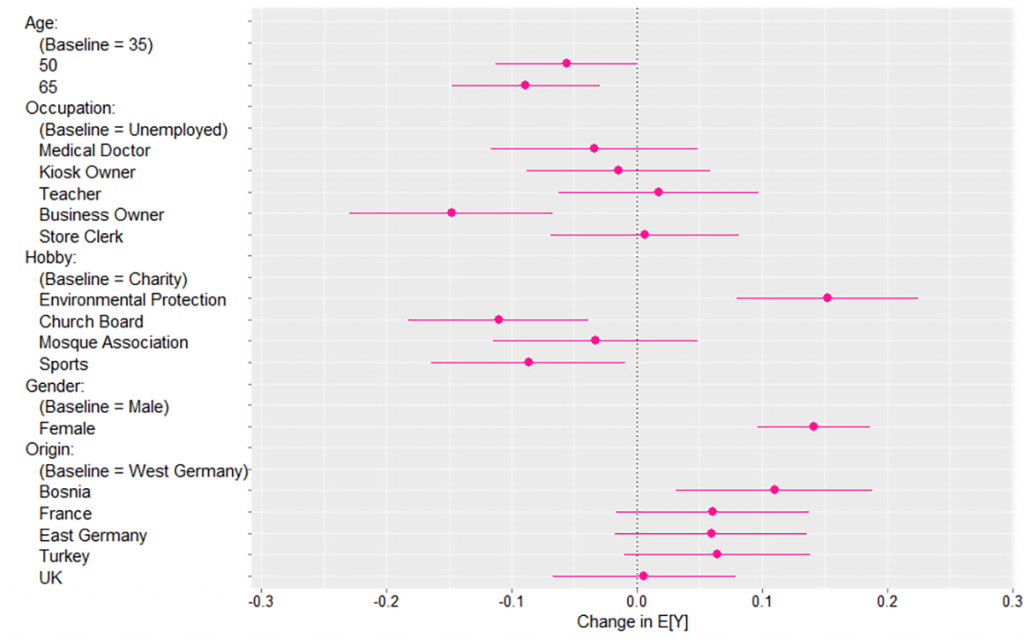
This graph plots the preferences of representatives of the two most pro-immigration/multiculturalism parties, the Greens and the Left (Die Linke). It shows, for example, that 65-year-old people are less preferable than 35-year-olds as new members. Furthermore, new female members are a lot more desirable than male. In terms of origin countries, both parties display a preference for people with a migrant background over native Germans. Responses show that people from Bosnia, in particular, are significantly preferable.
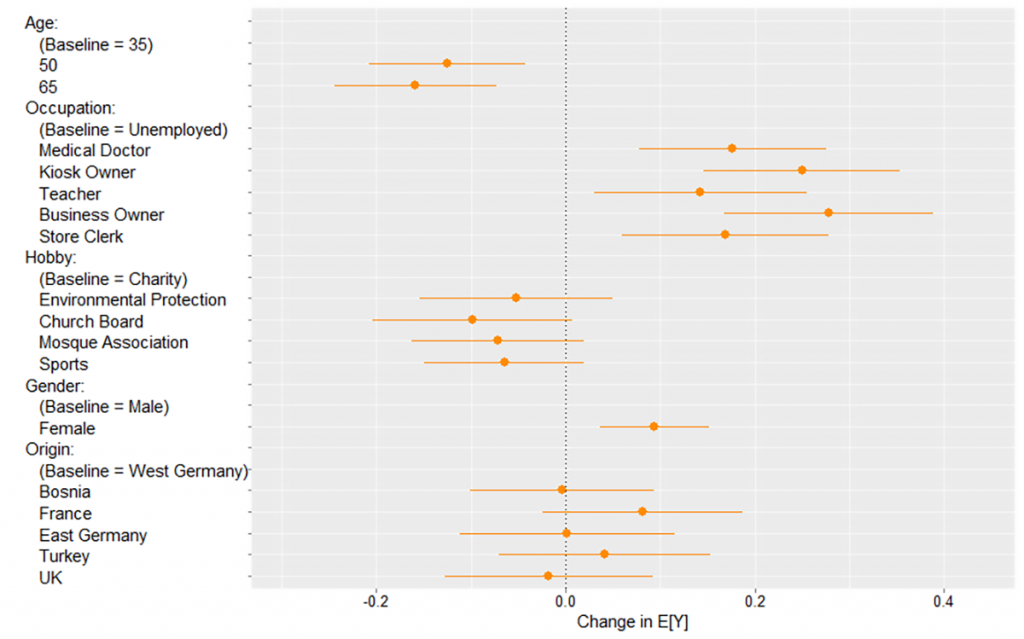
For the two most centrist parties, the Social Democratic Party (SPD) and the Free Democratic Party (FDP), member preferences look similar. The main difference is that they do not show clear preferences for people from any particular country of origin. These two parties also have a clear preference against unemployed members. All occupational categories show significantly positive coefficients against the baseline of an unemployed person.
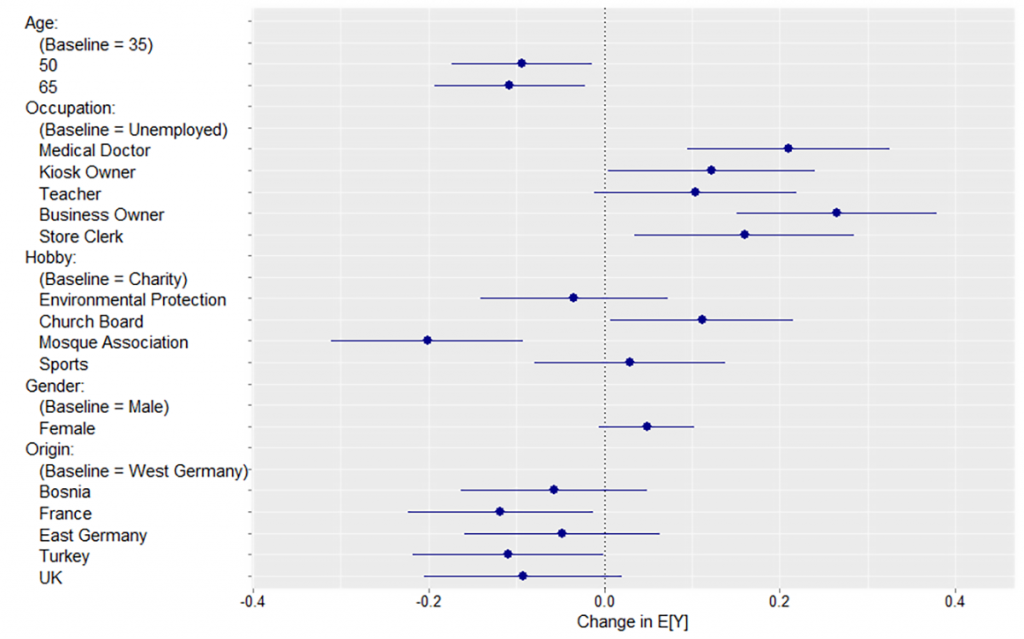
Germany's most anti-immigration/multiculturalism parties are the CDU/CSU coalition and Alternative für Deutschland (AfD). Members of these parties have the opposite preferences regarding origin countries compared with the Greens and the Left. They indicate native Germans as preferable to people with a migrant background. Responses showed that people from France and Turkey in particular were significantly less desirable. Relatedly, respondents also indicate that engagement in a mosque association would be the least desirable non-occupational activity for a potential new member.
Before explicitly asking the parties about their strategies for attracting new members with migrant backgrounds, I wanted to find out how many people with migrant backgrounds are already members of German parties. Parties do not publish official statistics on this. I therefore asked party representatives to estimate the share of members with a migrant background in their local chapters. The bar chart below plots the average of their responses.
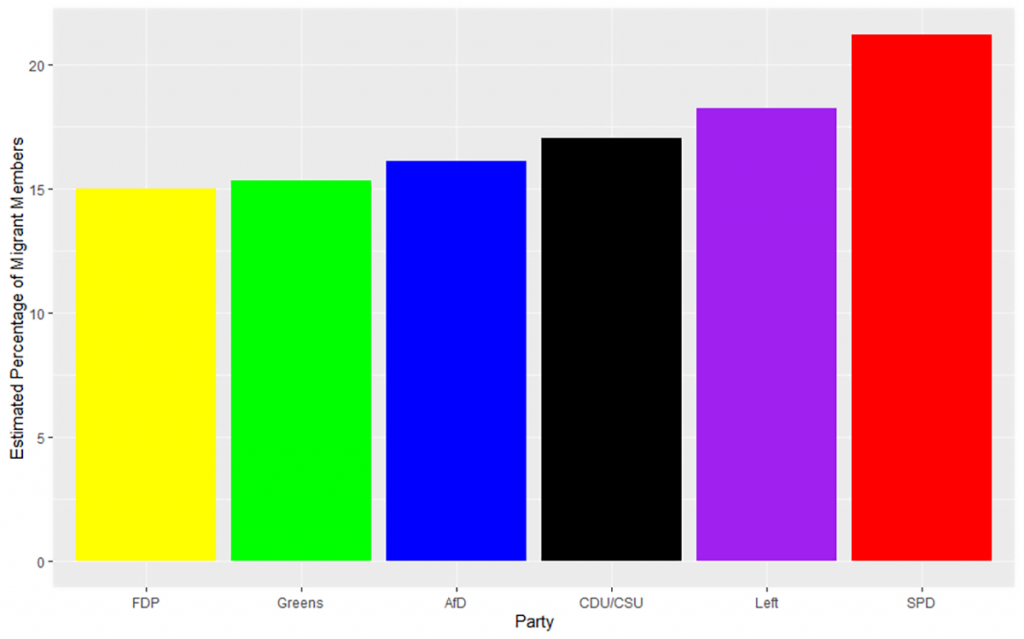
It's likely that most parties would rather over- than underrepresent their share of migrant members. An inevitable social desirability bias in responses thus means that we should interpret these percentages as the upper bounds of the true values. Still, not a single party comes close to the population-wide average of Germans with a migrant background, which is more than 25%.
I asked which currently underrepresented groups the six parties see the biggest need to incorporate in party politics. The responses I received revealed differing priorities. Only the Greens name migrants as their primary target. The SPD and AfD focus on young people, the Left on people of low socio-economic status, and the FDP and the CDU/CSU on women. In the graphic below, bigger, more central terms in the word cloud represent more frequently mentioned groups.


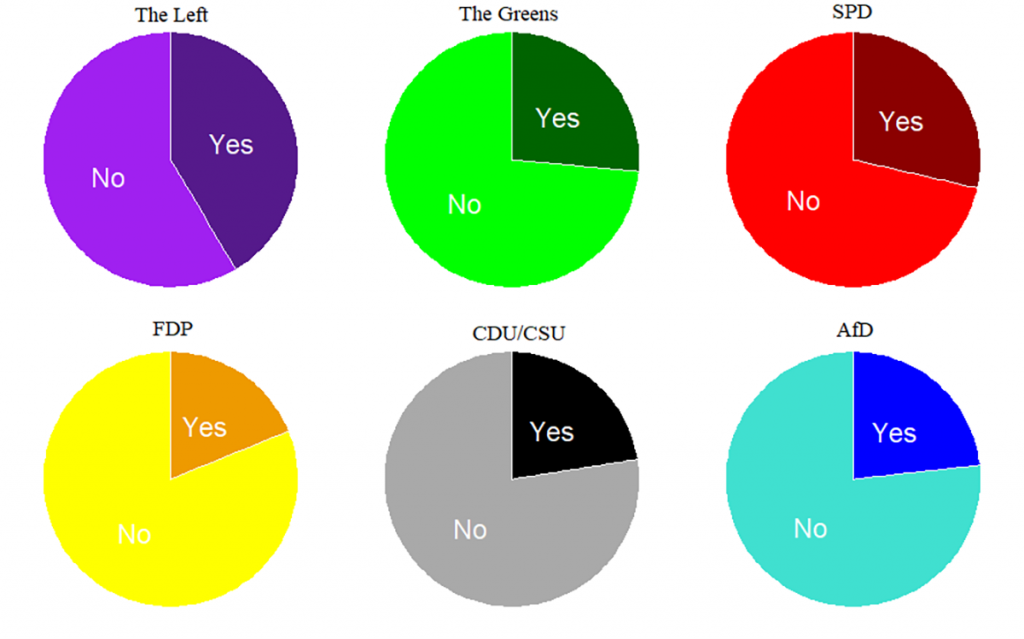
Finally, my survey asked party representatives whether their local chapters have strategies for attracting people of migrant backgrounds. The pie charts show the percentages of representatives who answered this question with yes or no.
The Left had the highest proportion of local chapters with strategies for attracting migrants (41%). The FDP had the lowest proportion, at 19%. Some of the most frequently mentioned strategies were the release of multilingual documents and cooperation with local migrant communities. Alternative strategies mentioned in survey responses included increased visibility for migrants in elite-level positions, along with vocal commitments to diversity. Another popular strategy seems to be the establishment of working groups on topics of interest to migrants.
There is certainly a willingness to increase the party-political representation of migrants in some local party chapters in Germany. Yet it does not seem to be a priority to many. The most obvious hurdle is an open aversion among conservative and right-wing parties to welcoming new members of foreign origin. My research found that most local chapters of all Germany's main political parties still lack strategies to attract migrant members.
So, while the majority of German parties now pledge a commitment to diversity, and proactively target new young and female members, the same efforts have yet to manifest when it comes to the inclusion of migrants and ethnic minorities.